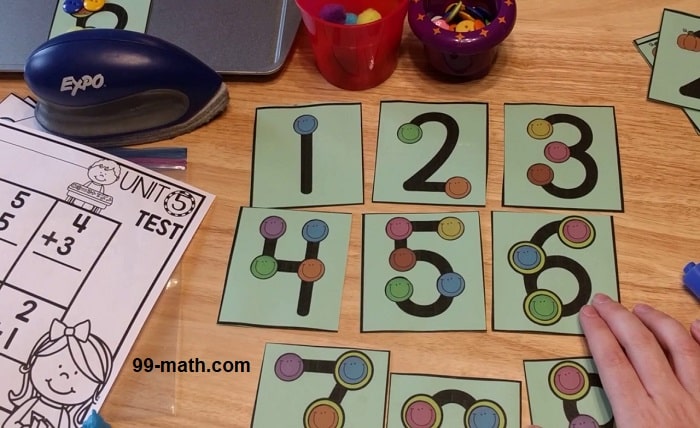The Key to Unlocking Mathematical Success
Mathematics is a fundamental subject that forms the basis for many fields of study and professional practices. Despite its importance, many students struggle with math, often developing a fear or dislike for the subject. However, unlocking mathematical success is achievable for every student with the right approach, mindset, and support. In this article, we’ll explore the keys to unlocking mathematical success, including developing a positive attitude, fostering a growth mindset, utilizing effective teaching strategies, and leveraging technological tools.
Developing a Positive Attitude Towards Math
Changing Perceptions
One of the first steps towards mathematical success is changing the way students perceive math. It’s common for students to believe that they are either “good” or “bad” at math. This fixed mindset can be detrimental to their learning and progress. Instead, students should be encouraged to see math as a subject where skills can be developed with practice and effort.
Encouraging Curiosity and Enjoyment
Teachers and parents play a crucial role in fostering a positive attitude towards math. By creating a learning environment that encourages curiosity and enjoyment, students are more likely to engage with the subject. Incorporating fun and relatable math activities can help students see the relevance of math in their everyday lives and reduce anxiety associated with the subject.
Fostering a Growth Mindset
Emphasizing Effort Over Talent
A growth mindset, popularized by psychologist Carol Dweck, is the belief that abilities and intelligence can be developed through dedication and hard work. In the context of math, this means emphasizing the importance of effort, persistence, and learning from mistakes. Students should be praised for their hard work and resilience rather than being labeled as “smart” or “talented.”
Learning from Mistakes
Mistakes are a natural part of the learning process, and students should be encouraged to view them as opportunities for growth. When students understand that making mistakes is a valuable part of learning, they are more likely to take risks and persevere through challenging problems. Teachers can facilitate this by creating a supportive classroom environment where mistakes are seen as a learning tool rather than a failure.
Effective Teaching Strategies
Differentiated Instruction
Every student learns differently, and effective teaching strategies recognize these differences. Differentiated instruction involves tailoring teaching methods to meet the diverse needs of students. This can include using various instructional materials, providing additional support for struggling students, and offering enrichment activities for advanced learners. By addressing the unique needs of each student, teachers can help all students achieve mathematical success.
Hands-On Learning
Hands-on learning activities allow students to explore mathematical concepts in a tangible and meaningful way. Using manipulatives, visual aids, and interactive activities can help students better understand abstract concepts and retain information. For example, using blocks to teach addition and subtraction or creating geometric shapes to explore properties of polygons can make math more engaging and accessible.
Real-World Applications
Connecting math to real-world situations helps students see the relevance and importance of the subject. Teachers can incorporate real-world problems and scenarios into their lessons to show how math is used in everyday life. This approach not only makes learning more interesting but also helps students develop practical problem-solving skills that they can apply outside the classroom.
Leveraging Technological Tools
Educational Software and Apps
Technology has revolutionized math education by providing a wide range of tools that enhance learning and engagement. Educational software and apps offer interactive lessons, practice exercises, and personalized learning experiences. Programs like Khan Academy, Mathletics, and Prodigy provide students with opportunities to practice math skills at their own pace and receive immediate feedback.
Online Tutoring and Support
Online tutoring services and support forums can provide additional help for students who need extra assistance. Platforms like Tutor.com, Chegg, and Mathway offer one-on-one tutoring sessions and step-by-step solutions to math problems. These resources can be invaluable for students who require more personalized attention or need help outside of regular class hours.
Virtual Manipulatives and Simulations
Virtual manipulatives and simulations allow students to explore mathematical concepts in an interactive and visual way. Tools like GeoGebra, Desmos, and PhET Interactive Simulations provide dynamic representations of math problems, helping students visualize and understand complex ideas. These tools are especially useful for teaching topics like geometry, algebra, and calculus.
Building a Supportive Learning Environment
Collaborative Learning
Collaborative learning encourages students to work together to solve problems and share ideas. Group activities, peer tutoring, and math clubs can foster a sense of community and support among students. Working with peers can help students develop communication and teamwork skills, as well as gain different perspectives on solving math problems.
Parental Involvement
Parental involvement is crucial for a child’s success in math. Parents can support their child’s learning by providing a positive attitude towards math, helping with homework, and encouraging a growth mindset. Additionally, parents can seek out resources and activities that reinforce math concepts at home, such as math games, puzzles, and educational websites.
Conclusion
Unlocking mathematical success is a multifaceted process that involves developing a positive attitude, fostering a growth mindset, utilizing effective teaching strategies, and leveraging technological tools. By creating a supportive and engaging learning environment, educators and parents can help students overcome their fears and challenges in math, paving the way for their success. With the right approach and mindset, every student has the potential to excel in mathematics and develop the skills needed for future success.
Also Read:





